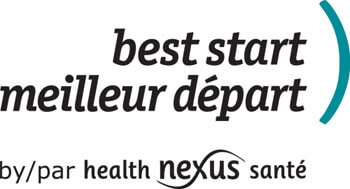
Your child needs lots of care. All the little things you’re going to do for your baby will affect their development. Even when your baby is very young, they have needs, and that’s where “Baby Wants…” can help.
Baby wants… to be comforted.
Your child needs you to comfort them whenever they are sick, tired or just cranky. When a baby cries, they are letting you know they need you. Pick up your baby, say soothing things and give a cuddle. You won’t spoil your baby. Even if your baby does not stop crying right away when you try to provide comfort, you are still letting them know they have been heard, that they are important to you and that you are there for your baby. This builds their sense of security and trust.
Baby wants… to play.
Your baby learns by playing. Babies find out about the world around them and learn about themselves. You don’t need to have all the toys you see in magazines or on TV. The simplest games are often the most fun. Babies love playing with plastic containers, pots and a wooden spoon. “Eensy weensy spider” and “Peek-a-boo” are lots of fun for children and parents. You’ll both laugh!
Baby wants… to be read to.
It’s never too early to start reading or telling stories to children, even newborns. Reading books or talking about pictures at bedtime or at other times of the day should be part of a baby’s routine. Newborns who hear the words of a story are already getting their brains ready to learn words and sentences! And babies love touching books, with their exciting pictures.
Baby wants… to be sung to.
Sing nursery rhymes to your baby, sing in the car or sing at home with actions. Your baby will love it! And you don’t need to have a good voice. Babies simply like hearing the sound of your voice. There are lots of books of nursery rhymes and songs for babies, but most of us already know some from our childhood. Ask other parents about their favorite children’s songs, borrow CDs from your library or even make up your own.
Baby wants… to learn to talk.
Babies who hear people speaking are already learning sounds, words and sentences. Explain to your baby everything you’re doing:
- “Mummy is peeling the potatoes.”
- “Daddy is changing your diaper so you’ll be all clean.”
- “Look, your aunt and uncle are here to visit!”
- “Catch the ball,” and so on.
When you go grocery shopping, talk to your baby about what you see. Saying all these words is an active way of preparing your baby for a good start in life. And learning to talk is the basis for success at school!
Baby wants… to learn your language.
Babies may begin to learn two languages right from birth. Learning two or more languages is not only a skill for later life, but can also help your baby to be connected to your family, your culture and other cultures. Toddlers who are starting to talk may mix up the two languages a little, this is normal. Over time, children will learn to speak well in the languages they are exposed to. It is important to provide lots of opportunities in both languages.
Here are some suggestions that may help your child use two languages in daily life:
- Visit your local library and ask for books in the languages you speak in your home. Read these books to your child.
- Participate in community events and programs that celebrate your language and cultural heritage. Many EarlyON Child and Family Centres offer resources in many languages and opportunities to meet with others from your community that share your language.
- Join parent groups where your language is spoken or start your own group.
Remember, the best thing you can do to help your child learn two languages is to talk, sing, read and play in the language that comes most naturally to you. You will help your baby feel proud of your language and culture.
Baby wants… to be taken care of.
- Make sure your baby is safe by watching over your baby and putting away dangerous objects. Teach phrases like “Stop”, “That’s hot”, “Hold daddy’s hand”.
- Take care in your everyday activities:
– Wash your hands and your baby’s hands before meals.
– Make sure the baby is properly buckled into the car seat.
– Include baby at mealtimes as it is a wonderful social time for your baby and the whole family.
– Whenever you get a chance, take your baby outside.
– Don’t smoke or let others smoke around your baby, etc. - Talk about your baby’s health with a community health nurse, with your family doctor or with the pharmacist. They can give you advice.
Most importantly, don’t forget your baby needs you in all sorts of ways to develop. Each child has their own pace of development and you need to watch your baby and get to know them so you can meet your baby’s needs.
Baby wants to be loved!
For more information:
Healthy Babies Healthy Children Program
Programs are available through all Ontario public health units and can help children get a healthy start in life.
